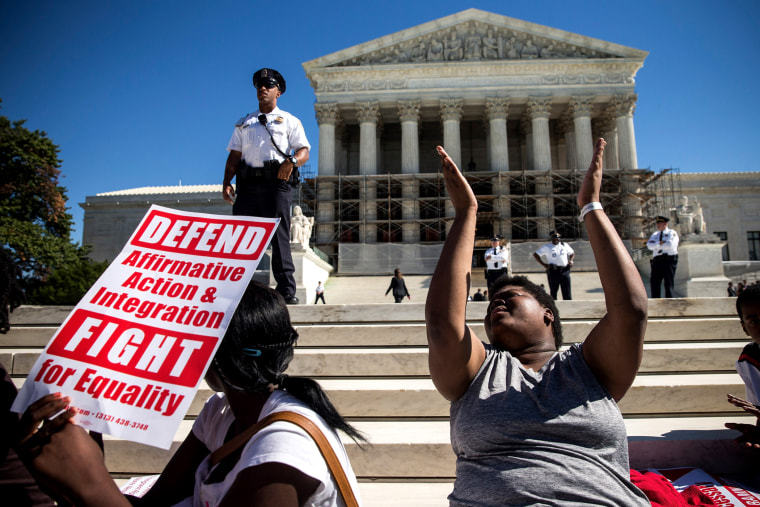Justice Antonin Scalia is raising eyebrows again with new racially charged comments from the bench.
“The 14th Amendment protects all races,” said Scalia, not “only the blacks.”
Scalia was speaking during oral arguments in a case in which advocates for minorities are challenging Michigan’s voter-approved ban on affirmative action in college admissions. A federal appeals court ruled that the ban violates the 14th Amendment’s equal protection guarantee, by preventing minorities from lobbying in support of racial preferences, when other groups can lobby for their own favored programs.
A lawyer challenging the ban argued that the original goal of the 14th Amendment was to protect minority rights against a white majority. To which Scalia responded:
My goodness, I thought we've -- we've held that the 14th Amendment protects all races. I mean, that was the argument in the early years, that it protected only -- only the blacks. But I thought we rejected that. You -- you say now that we have to proceed as though its purpose is not to protect whites, only to protect minorities?
It’s true that the 14th Amendment doesn’t explicitly single out blacks. But it didn’t need to. Approved three years after the end of the Civil War, the measure—and its Equal Protection clause in particular—was intended to ensure equal civil and political rights for former slaves.
In February, Scalia said Section 5 of the Voting Rights Act was a “perpetuation of racial entitlement.” He later joined the majority in voting to strike down the provison, badly weakening the landmark civil rights law.
